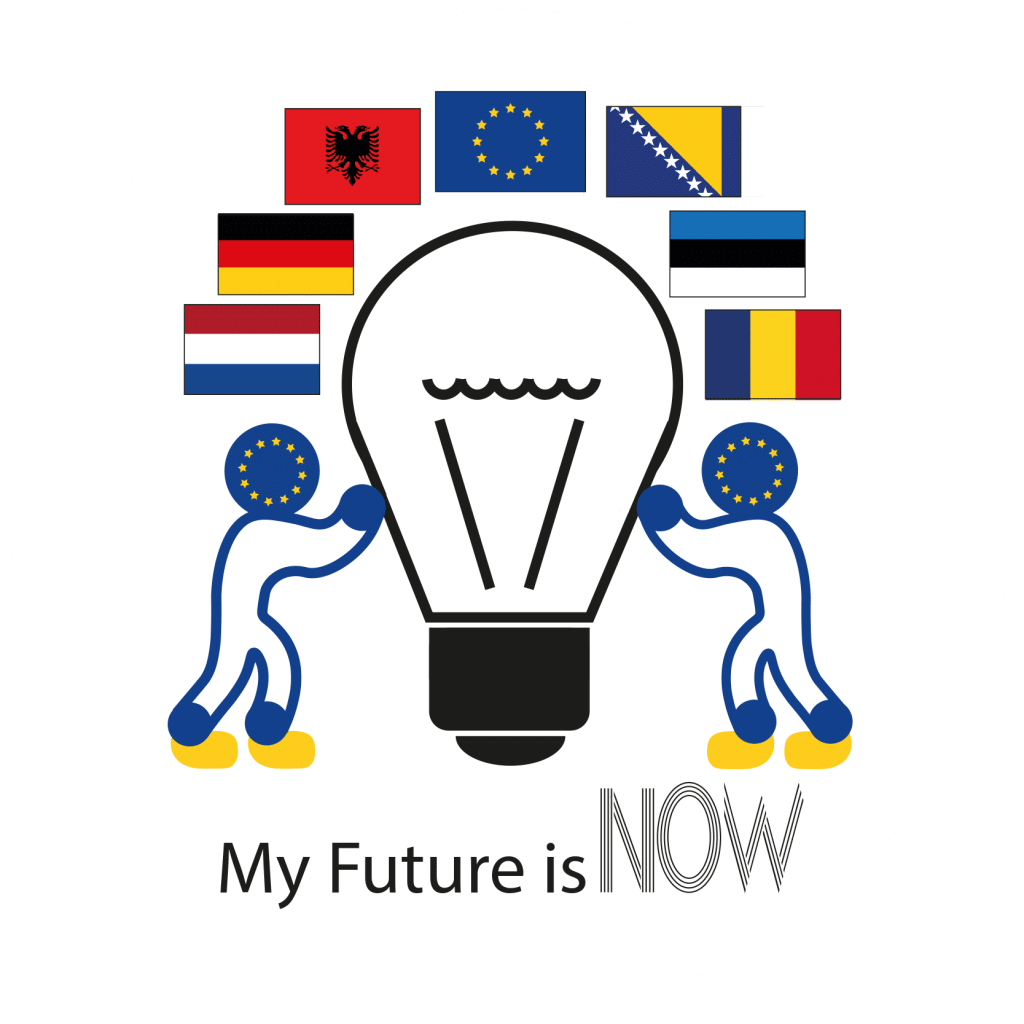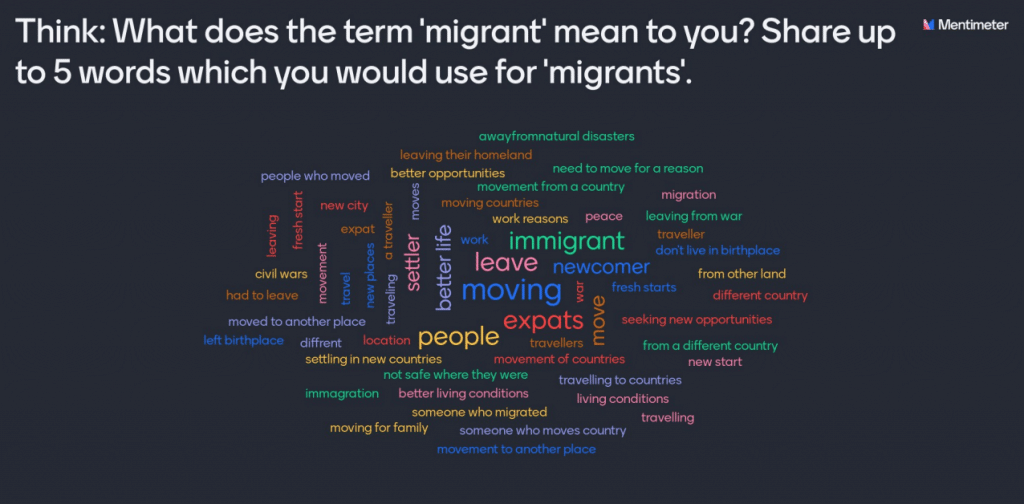"Imagine being a refugee coming to a new country with no friends, family or job. Imagine not being able to understand anything."
Year 9 student
The My Future is NOW project aims to encourage democratic and civic participation of youngsters in 6 countries (Netherlands, Germany, Bosnia, Albania, Romania and Estonia). Our theory of change is based on three steps; “Engage, Connect and Empower”, as a bottom up approach.
Based on our experience and research three thematic dimensions (Jobs and livelihood, Migration & integration and Democratic processes) are the common thread to help them open up, understand the opportunities for societal and community work and meet their peers in other EU countries.
The project makes use of the Boiling frog game as a conversation starter what freedom means to persons. When you put a frog in a pan full of boiling water, he’ll immediately jump out: too hot! But if you heat him up inside the pan, he will stay. Nice and warm – until he is cooked alive. We use this analogy of the boiling frog to address the abstract topic of freedom. When do things become too hot, when should you jump up to protect freedom.
Last week many students and teachers at the British school of Amsterdam did the boiling frog game as part of a their Activity Week on Global Goals, focusing on the topic of Migration and Integration. After the game they develop their own Call to Action poster. They can translate their new insight into a post that communicates their ideas. Great conversations and outputs!
The British School of Amsterdam: The Global Goals education pack was effective at introducing our students to collective and individual attitudes, assumptions and feelings we have towards refugees and migrants. Starting with the Boiling Frog Game, student were presented with challenging questions which promoted discussion and reflection. They acknowledged that there are a myriad of negative and challenging experiences that refugees and migrants face: displacement and isolation, the threat of violence, or death of loved ones.
It is a crisis.

"Immigration has been a key thing for me today… how poorly people get treated... even when they are settled."
So what happens to your self-confidence? To your education and skills, and personal development? To your career path? When you become a refugee. What can we (or host countries) do, to support and help these people?
Students worked in class sets and small groups to consider the different areas that are impacted when people are displaced as migrants, refugees or asylum seekers: Healthcare, Inclusion in the education system, Xenophobia and Fear, Tensions, Access to Resources and Inclusion in the economy.
Unanimously students believed that there was no easy solution. In their peace pledges they described the importance of offering a welcoming place, safety and opportunities. They identified these as key to supporting and promoting welfare. Recognising individuals’ talents and finding ways to reintroduce trade instead of focusing in on money and wealth, which many families will have lost in the process, was also decided as an important factor.
A starting point was to challenge students to investigate the different refugee and migrant experiences around the world and come up with solutions: A Call to Action.

"It was cool creating a solution: problem solving for different social inclusion problems. Like micro-farming to enable communities"
Bruno, Year 9 Student
"Peace symbolises: the unity of communities, the acceptance and admiration for various cultures, and respect for everyone"
Year 9 Student
What can be done?
- Support through counseling and therapy for those who need help with their positive mental health; raise mental health awareness and prevent judgement and ill-will towards migrants.
- Educate, in schools and society, about different mental illness and ways to better support positive mental health and normalise the discussion of these illnesses.
- Celebrate difference!
- Government Action: provide support where it is needed irrelevant of cost; improved human rights of minority groups.
- Inclusion in the economy: focus on the positive aspects of migrants living in your country such as the introduction of new languages, skills sets and culture.
So what can we do?
- Provide visas, which would enable them safer routes when traveling and settling in a new country.
- Complete a skills assessment and offer skills training at refugee camps.
- Produce a Refugee app where individuals can create a profile available to employers.
"It is very difficult to solve, without making unethical or expensive solutions... as well as this, there seem to be no solutions that please everyone. How can you let millions of refugees into one country? How and where do you draw boundaries?"
Year Nine Student
Students made presentations, posters, video recordings and created quizzes where they reflected on what immigration is, what it is to be a refugee and how different economies can support refugees. As well as this, they researched The International Day of Peace and discovered when and where it began. Students discussed the importance of this day and how it needs to be better promoted in schools, society and within families.
"Teaching younger people about the need for Peace and how to promote peace locally is important, like running a sports day and lunch for refugees. Basically, it is about the will to help others. You have to be willing to put yourself in the shoes of others."
Marvin, Year 9 Student

